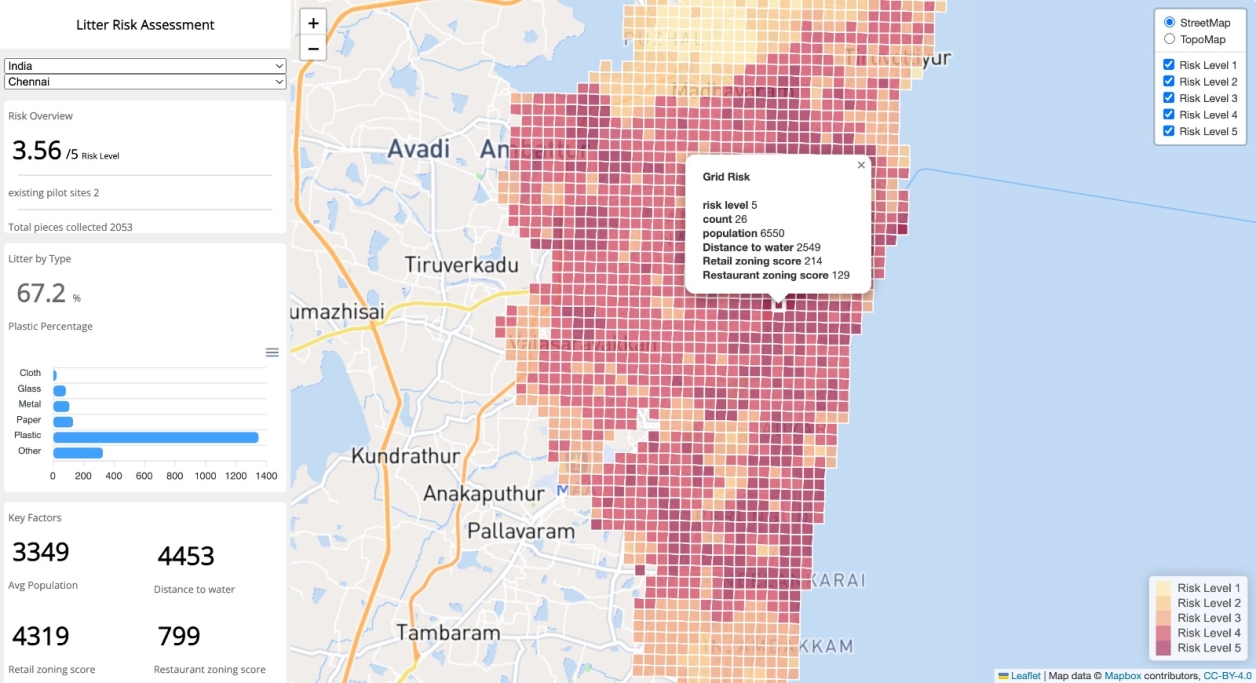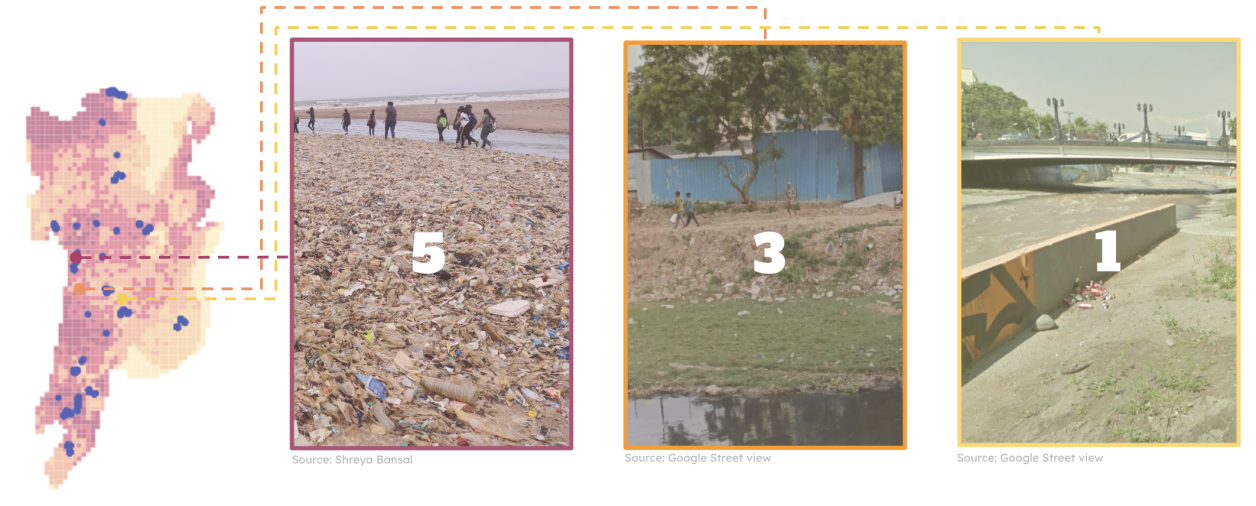Data-Driven Interdiction of Urban Marine Pollution
Client: Ocean Conservancy
As marine litter worsens across the world, litter accumulation poses significant cyclical health, biodiversity, and climate risks. For example, an estimated 11 million metric tons of plastic waste enter the ocean every year, and this number expected to triple by 2040. Particularly in developing countries with lacking waste disposal systems and recycling programs, litter accumulation poses a much steeper issue that is often difficult to solve systemically. This often disproportionately impacts vulnerable coastal dwellers and fisherman who heavily rely on the marine ecosystem.
The trilateral partnership program, Urban Ocean, has been developing initiatives that mitigate marine pollution, assess waste management, and enable cities to address ocean plastics and resilience. While Urban Ocean’s zero-waste pilot have made strides in reducing marine litter, there persists difficulty in site-selection of pilots due to lacking litter information. This adds unnecessary barriers to the siting of pilot zero-waste pickup programs. By leveraging geospatial machine learning, this practicum project aims to explore how best to navigate zero-waste siting in areas facing bleak marine litter conditions.
Our resulting dashboard aims to support the narrative-building and decision-making of zero-waste pilots and attract funding sources and other support for these cities.
Learn more about this project
GitHub Link
Marine Litter Assessment Dashboard Website
R Markdown Link
Presentation Link




